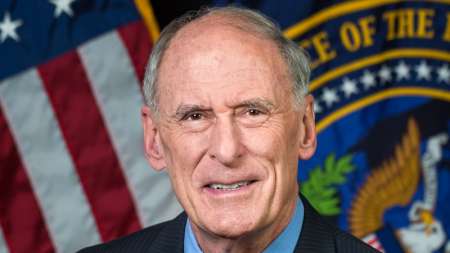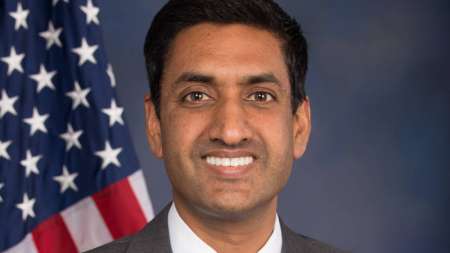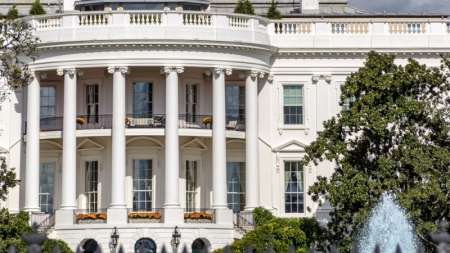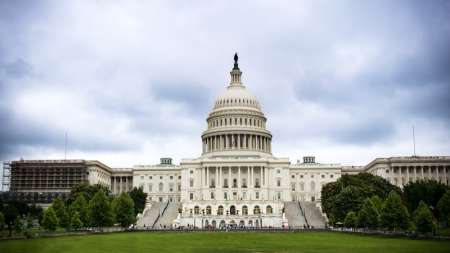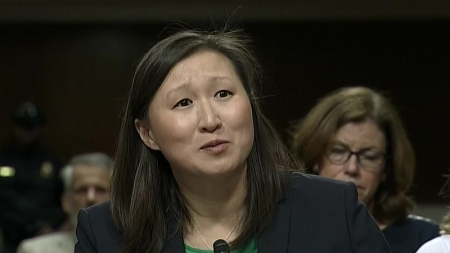Adopting cloud isn’t a one-size-fits-all proposition for Federal agencies. Instead, agencies looking to modernize their enterprise IT are customizing their adoption approach to fit their agencies’ structure, according to government and industry executives leading a Capital Exchange webinar on July 12. […]
Using digital records instead of paper-based ones can save government agencies money and help them provide better service to their constituencies, said speakers during Government Technology’s “Going Paperless: How to Do It and What You Will Gain” webinar on July 11. […]
Welcome to MeriTalk News Briefs, where we bring you all the day’s action that didn’t quite make the headlines. No need to shout about ‘em, but we do feel that they merit talk. […]
Amid mounting concern about attacks by foreign adversaries on the Department of Homeland Security’s supply chain, two House subcommittees met today to discuss that threat and legislation proposed by the White House–the Federal Information Technology Supply Chain Risk Management Improvement Act–that would respond to the problem. […]
Alexander Kott, chief scientist at the U.S. Army Research Laboratory, said Wednesday at the Defense Systems Summit that creating artificial intelligence (AI) and machine learning (ML) solutions for complex battlefield environments requires different prioritization than commercial solutions, and offered four tips for defense organizations looking to implement. […]
Department of Defense (DoD) Chief Information Officer Dana Deasy said today at the Defense Systems Summit that he has identified four “key strategic areas” that will work to support the National Defense Strategy (NDS). Those four areas – cloud, artificial intelligence, C3 (command, control, and communications), and cybersecurity – are organized not in order of importance, but rather “order of integration,” Deasy said, with each of the priorities flowing from the prior one. […]
Welcome to MeriTalk News Briefs, where we bring you all the day’s action that didn’t quite make the headlines. No need to shout about ‘em, but we do feel that they merit talk. […]
At today’s TBM Council Public Sector Summit, three government leaders stressed the importance of evolving the Federal government’s Capital Planning and Investment Control (CPIC) process and the role Technology Business Management (TBM) can play in that evolution. […]
Paul Craft, director of operations at the Joint Force Headquarters Department of Defense Information Network (JFHQ-DoDIN), spoke today at the Defense Systems Summit about how his relatively new component of U.S. Cyber Command is now tasked with operating and securing the entirety of DoD’s sprawling IT network infrastructure and has undertaken a complete restructuring of network operations for all of DoD. […]
Even as Apple went public yesterday with a new mobile device operating system intended to close security loopholes that law enforcement agencies were using to access locked devices, one digital forensics firm said it found a workaround to bypass the new security features for a cost of about forty bucks. […]
Director of National Intelligence Dan Coats said Monday that the intelligence community (IC) will be prioritizing a comprehensive cyber posture, machine-augmented intelligence, and modern data management as “foundational priorities” in the coming years, following a year-long reexamination of the IC known as the IC2025 initiative. […]
An overwhelming majority–86 percent–of 150 Defense Department (DoD) IT managers surveyed by MeriTalk said that failing to modernize legacy DoD systems is putting U.S. national security in jeopardy, and a similar number (83 percent) are concerned about the potential of the U.S. falling behind adversaries like China and Russia in newer-technology arenas including cyberspace, artificial intelligence, and electronic warfare. […]
Various arms of the Federal government are grappling with how to best curb critical infrastructure risk despite uncertainty regarding the best path forward and knowledge barriers surrounding the underlying technology. […]
The Department of Homeland Security’s Science and Technology Directorate and the Transportation Security Administration announced the winners of their passenger screening algorithm challenge that solicited new automated detection algorithms to improve speed and accuracy of detecting “small threat objects” during airport passenger screening processes. […]
Keeping pace with growing cyber threats is an uphill battle for Federal agencies as network complexity increases and the boundaries of networks extend to systems and devices not always under the control of their IT organizations. […]
The White House isn’t doing enough to address in a public forum a range of artificial intelligence issues and needs to institute a public process to seek comments on AI-related issues, said a group of six industry groups and more than 80 individuals from academia and the private sector in a July 4 letter to the White House Office of Science and Technology Policy (OSTP). […]
The Department of Homeland Security (DHS) is piloting a new artificial intelligence (AI) initiative with Canada’s Department of National Defense that kicked off today and aims to provide first responders and paramedics with information to help make potential life-saving decisions in the field. […]
The potential of artificial intelligence opens up the abundant future of game-changing machine-based applications in science, medicine, national defense, business, and just about every other area. But getting there while maintaining the U.S. lead in AI research and development will hinge on two old-school constants of innovation: money and people. […]
Welcome to MeriTalk News Briefs, where we bring you all the day’s action that didn’t quite make the headlines. No need to shout about ‘em, but we do feel that they merit talk. […]
A mobile device security platform funded in part by the Department of Homeland Security (DHS) Science and Technology Directorate (S&T) has been updated with a never-before-seen feature to help tackle one of the most persistent problems in Federal agency cybersecurity. […]
Amid growing fears of large-scale cyberattacks–ranging from attacks on infrastructure, to cyber espionage that threatens national security, to a “terabyte of death”–Congressional lawmakers are calling for a more clearly defined strategy for responding to such attacks. […]
Welcome to MeriTalk News Briefs, where we bring you all the day’s action that didn’t quite make the headlines. No need to shout about ‘em, but we do feel that they merit talk. […]
Rep. Ro Khanna, D-Calif., said in a tweet late Tuesday that he supports a “full investigation” by Federal government authorities into Facebook over its dealings with political consulting firm Cambridge Analytica including the firm’s use of Facebook user data on millions of Americans to construct voter profiles. […]
Underneath its more headline-grabbing aspects such as the proposed merger of the Departments of Labor and Education, the Trump administration’s Federal agency reorganization proposal issued on June 21 marks another step in the wider push toward greater Federal government IT modernization, a former Department of Commerce (DoC) official told MeriTalk. […]
The National Defense Authorization Act (NDAA) for FY2019 will head into conference next week when legislators return from the Fourth of July recess. The $700+ billion must-pass defense spending bill has been approved in both the House and Senate, and now the two chambers must come together to reconcile differences in the legislation and re-vote the unified bill before it can land on President Trump’s desk for signing. […]
Leaders in the Federal intelligence community, speaking last Tuesday at Defense One’s Tech Summit, said that their agencies are using vast stores of data, machine learning, and neural networks to go beyond simple fact-finding, to now radically re-envision how the intelligence community acts on credible information. But with these advances in technology come thorny new ethical and procedural questions, those officials said. […]
With cybersecurity threats on the rise, most recently seen in a Chinese hack of a Navy contractor, the Department of Defense is taking new steps to ensure security, in part by putting more of the onus on contractors. […]
Sens. John Thune, R-S.D., and Brian Schatz, D-Hawaii, on June 28 introduced S. 3157, the Streamlining the Rapid Evolution and Modernization of Leading-edge Infrastructure Necessary to Enhance Small Cell Deployment Act (STREAMLINE Small Cell Deployment Act), to mixed reviews from industry groups. […]
Deputy Defense Secretary Patrick Shanahan last Wednesday issued a memorandum that officially establishes the Defense Department’s (DoD) new Joint Artificial Intelligence Center (JAIC), confirming statements made by Secretary James Mattis and other DoD officials in April that a center to house DoD’s roughly 600 AI projects was forthcoming. […]
California lawmakers on Thursday passed the California Consumer Privacy Act of 2018, one of the toughest U.S. laws governing data privacy. The legislation specifically targets information companies, including Google, Facebook, Amazon, and AT&T–many of whom are headquartered in California. […]







